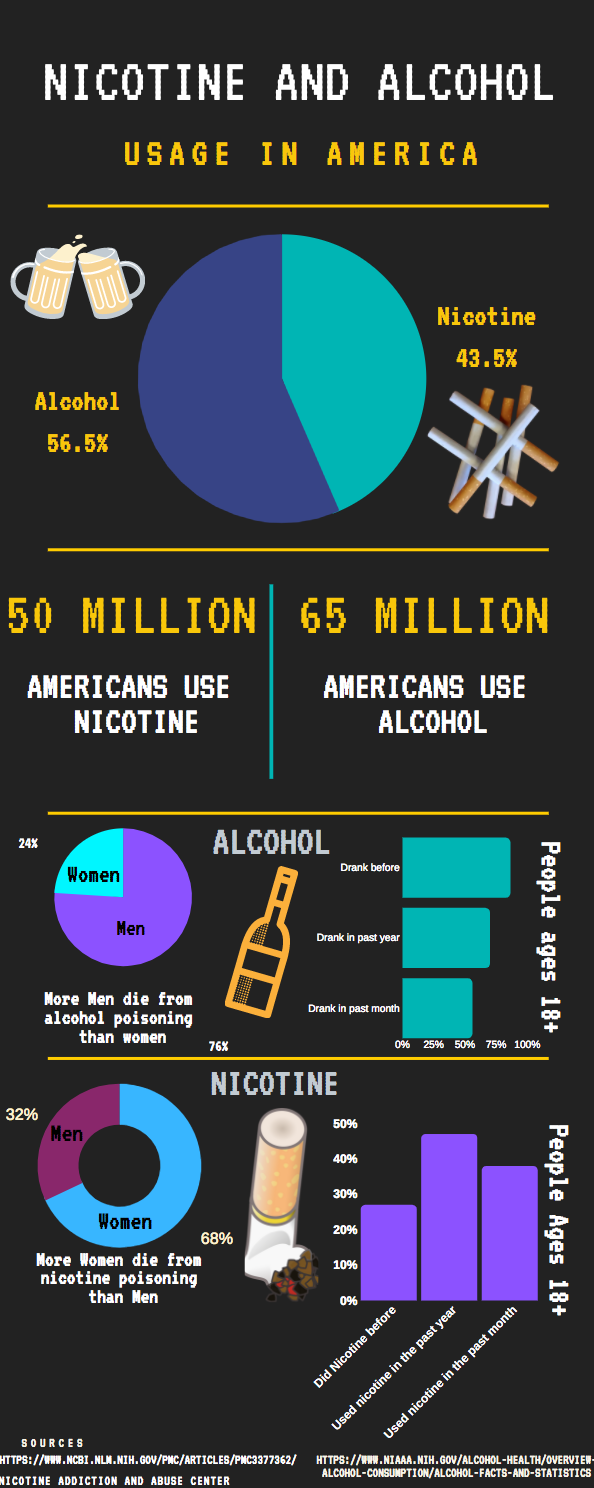Schools should educate, not punish
March 12, 2019
Illegal substances have always been a “popular” thing to do in high school and today, with the rise of vaping, the number of students who participate in those activities is rapidly increasing.
Even as those numbers go up, it’s ultimately the student’s responsibility to decide if they want to “follow the trends” and it’s the parents’ responsibility to discipline their kids, not the school. The school exists to instruct and educate.
If schools punish students by suspending or expelling them, students get more of what they want — free time to do as they please. While on suspension, students are able to stay home, most likely alone, and will likely do whatever it was that instigated the punishment. When home unsupervised, many students vape, do drugs or drink alcohol.
Adults are a big part of the problem as well; kids often see adults smoking on the street and many students argue that their parents vape and drink at home. How is school any different?
Instead of the school suspending or expelling kids when they’re caught, the school should let the parents know. Discipline is the job of parents in the first place.
People may disagree and say that not punishing kids will influence other students to break the rules. That is not the case with vaping and the use of illegal substances because, outside of school, there are far more influences than there are in school.
The schools should instead educate the students about drugs, vaping, and alcohol so kids know what they’re getting themselves into. Drug and alcohol education will teach kids the dangers of doing illegal substances and show them how these substances can affect their lives now and in the future.
It is ultimately the school’s job to teach, the parent’s job to discipline and punish, and the kid’s job to learn.


